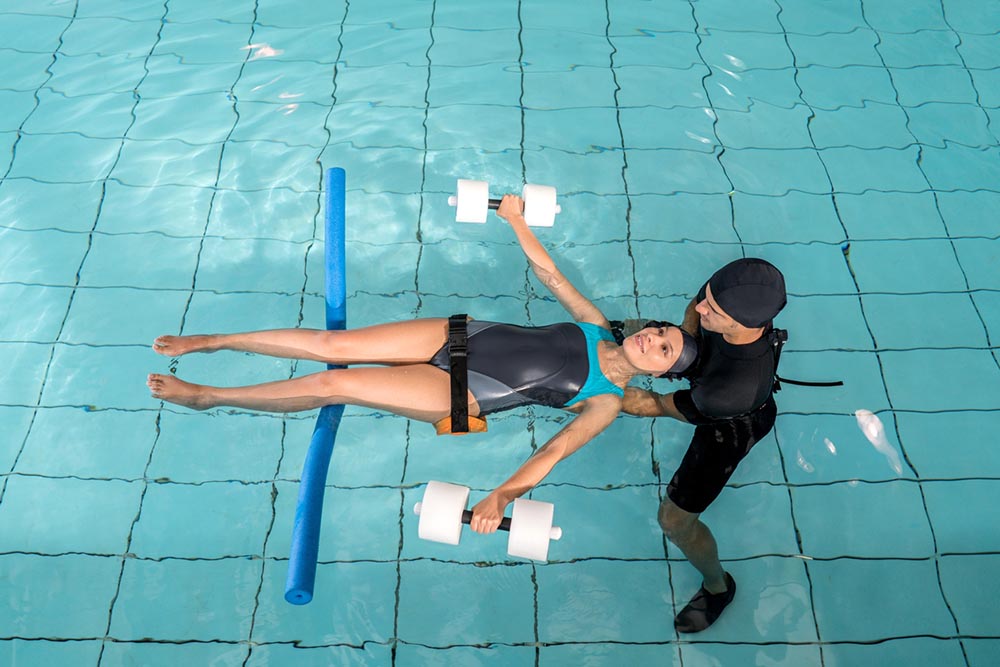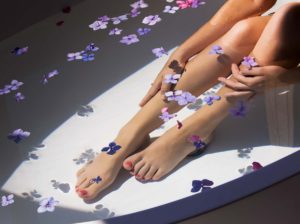What is Hydrotherapy?

Hydrotherapy is the treatment of different conditions using water. It may just seem like swimming, but it’s much more than that. During treatment, either hot or cold water is used, sometimes both. Hydrotherapy is usually performed with a physiotherapist, who on your first session, will get a full health assessment so that they can better treat your condition. Hydrotherapy usually consists of 5-6 sessions, each lasting around 30 minutes.
Different Types of Hydrotherapy
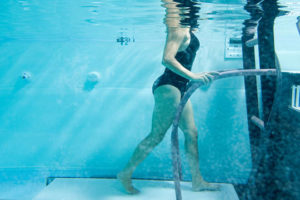
You can go to a health center or a spa to receive a hydrotherapy treatment. The best part though is that you don’t always have to leave your house. Some hydrotherapy treatments you can do from the comfort of your own home.
Wastu

Watsu is a form of hydrotherapy that is done in warm water, which combines massage, shiatsu, dance, and muscle stretching. The temperature of the water relaxes the muscles. While some people may come in for pain or an injury, some just come in for the sense of relaxation.
Sauna/Steam Bath

The hot air promotes sweating, which helps to release your bodies impurities.
Contrast Bath/Shower

During a contrast bath or shower, you will alternate using hot and cold water. After you’re done with a warm shower, turn the water as cold as you can comfortable tolerate. This helps to reduce pain and inflammation.
Hydrotherapy Pool Exercises

This consists of slow and controlled exercises which someone who is dealing with pain or inflammation may not be able to do outside of the water.
Whirlpool Baths
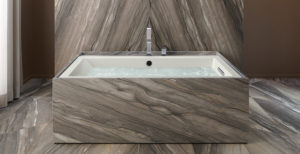
A whirlpool bath is just like a bubble bath paired with some pressure. Not only can you do this at a spa or treatment center, if you have a Jacuzzi at home, it offers the same relief.
Hot/Cold Water Therapy
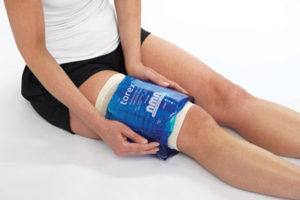
This may sound just like the contrast listed above, but instead of in a bath or shower, you will use a heating pad or icepack. Alternating these two back and forth with help soothe your aches and pains.
The Balneotherapy
In either a bath or a spa pool that is filled with minerals such as sulfur, radium, or silicia, you use both hot and cold water to help with conditions such as fibromyalgia, arthritis, and skin conditions.
Benefits of Hydrotherapy

Hydrotherapy can help with many different conditions, along with helping with injuries.
Here are some benefits of hydrotherapy:
Improve Muscle Flexibility/Range of Motion
Muscle flexibility is improved because the hotter temperature of the water relaxes tight muscles.
Improves Strength
There are some exercises that can be achieved easier underwater that you may not be able to do outside of water. Water resistance helps strengthen your weak muscles. By introducing different forms of hydrotherapy, you can increase your speed of movement.
Releases Endorphins
The buoyancy of water makes you feel weightless, which is relaxing for people. Research shows that exercising in warm water helps alleviate symptoms of anxiety and depression.
Conditions that hydrotherapy helps with are:
- Arthritis
- Depression
- Stomach problems
- Sleep disorders
- Muscle and nerve problems
- Headaches
When You Should Avoid Hydrotherapy

There are times when hydrotherapy isn’t a good idea for you. Also, hydrotherapy should not be a substitute for treatment of a health condition. Always check with your doctor before you use hydrotherapy.
Here is a list of reasons why you would avoid hydrotherapy:
- Heart disease
- High blood pressure
- Fever
- Inflammation
- Kidney disease
- Cancer
- Pregnancy
Study on the Effectiveness of Hydrotherapy
A 2002 study reviewed literature in 10 medical and allied health databases from studies of hydrotherapy practices. They used 17 randomized control trials, two case studies, twelve cohort studies, and two case reports. The conclusion of all of this literature that was reviewed is that hydrotherapy does benefit patients in pain, function, joint mobility, strength, and balance.
References:
Wong, C. 2018. What is Hydrotherapy? Very Well Health.
Hydrotherapy Treatment, Benefits, Types, & Contraindications. HomeCEU.
2018. Hydrotherapy Treatment Methods. Fabrication Enterprises Inc.
Buster’s Story. Hainault Hydrotherapy Centre.
Hydrotherapy for Chronic Pain Conditions. Hope Instilled.
What is Watsu? Aquatic Bodywork Association, New Zealand.
Geytenbeek, J. 2002. Evidence for Effective Hydrotherapy.
Benefits of Hydrotherapy. Revive.

